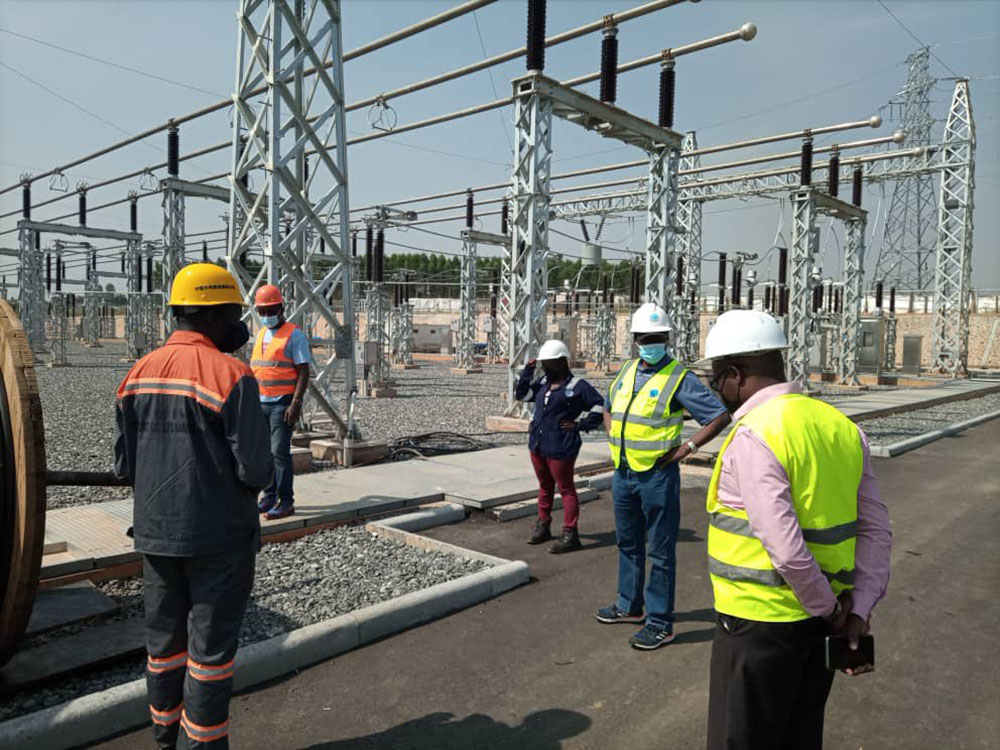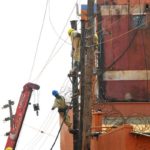The Uganda Electricity Distribution Company Limited (UEDCL) is set to hire over 3,000 workers to operate in the electricity sector following Umeme’s exit in March 2025.
The revelation was made by Paul Mwesigwa, Managing Director of UEDCL, noting that the priority will be given to the current Umeme employees.
Mwesigwa said that although Umeme is the largest distributor to be taken over by UEDCL, several smaller distributors have already been taken over between 2017 and 2024. The staff from these smaller distributors was integrated into the government workforce.
“This year, we took over a distributor in Kyegegwa and Kayunga. We engaged all the staff, interviewed them, and those who qualified joined us. The same plan is in place for Umeme. Currently, we have 490 staff, but our business model requires us to accommodate up to 3010 employees to take over Umeme’s operations. Umeme has 2502 employees based on our discussions with them. We will engage all of them, and those willing to join us will be interviewed and given appointments at UEDCL,” Mwesigwa explained.
In February 2024, Parliament was informed of plans by the government to borrow $765.75 million (Shs2.812 trillion) from external lenders to cover the costs of Umeme’s exit. The estimated buyout amount due to Umeme is $225.75 million (Shs859.430 billion). UEDCL requires $540 million (Shs2.051 trillion) for initial investments, with $190 million needed during the takeover process and $70 million (Shs257.142 billion) per annum for the next five years.
“The transition period started three years ago, and now we are in the final stages. We are handling the final details, and by the transition day, everything will be cleared on the side of the government and Umeme. We plan to invest $70 million in the network, excluding new connections. We are in touch with financial institutions through the Ministry of Finance to secure favorable loans to benefit the population with cheaper money,” Mwesigwa said.
Some legislators raised complaints about the decline in the quality of services offered by Umeme ahead of its exit on March 31, 2025. Some reported a two-year delay in replacing transformers in their areas, despite utility service requirements mandating replacement within five days.
Robert Kasolo (Iki Iki County) remarked, “Now that you are in the final stages of taking over from Umeme, there is a problem with transformer replacement. In my area, it has taken Umeme two years to replace a transformer. What does that mean? In your monthly discussions, has this issue been addressed?”
Gerald Nangoli (Elgon North) highlighted a similar concern, revealing that Umeme requires a minimum of 35,000 registered electricity users before replacing a faulty transformer, a condition only attainable in densely populated urban settings like Kampala unlike rural electricity customers.
“The issue of transformers affects the entire country. Umeme requires 35,000 registered users before replacing a transformer, which is feasible in Kampala but not in rural areas. Those who can afford power should have access to it,” Nangoli said.
According to UEDCL, the recently released May 2024 national census revealed that Uganda has 10.2 million households, yet only 2.2 million are connected to the national grid.
Kiwanuka attributed delays in replacing key electricity infrastructure to Umeme’s reluctance to invest ahead of their exit, noting, “As Umeme’s agreement with the government draws to a close, they are reluctant to invest in infrastructure. The agreement required them to reinvest, but they are now holding back. How are you planning to address the issue of infrastructure vandalism, which has left many areas in total blackout?”
Mwesigwa acknowledged the decline in service quality ahead of Umeme’s exit, attributing it to limited access to capital and the need for Umeme to minimize costs. He assured MPs that these concerns have been raised in monthly transition meetings.
“In our meetings with the regulator, we discussed the quality of service as Umeme’s concession ends. Financiers may be reluctant to provide funds to Umeme, and they need to control costs. However, they have shown a willingness to continue providing services until the transition is complete,” Mwesigwa said.
The December 2023 Auditor General’s report highlighted several queries in government-owned electricity companies, including the Electricity Regulatory Authority (ERA), Uganda Electricity Generation Company Limited (UEGCL), and UEDCL.
The auditors raised concerns over Shs111,278 billion in outstanding amounts owed by related parties to UEDCL and the lack of a succession plan for its board and senior management.
Queries were also raised about UEDCL’s failure to maintain the Escrow account meant to fund the transition from Umeme. As of 30th June 2023, the account’s balances were $8,121.52 (Shs29,834 million) and $21,247 million and Shilling accounts, respectively, less than 1% of the anticipated $20 million (Shs73.469 billion) needed at the end of the concession period.
Concerns were also noted about the integrity and management of UEDCL’s payroll, with two staff receiving salaries despite expired contracts and inconsistencies in the dates of birth for 12 employees between the company payroll and National IDs.
The company was also faulted for failing to exhaust its wage budget for four years (2019-2023), having budgeted Shs69 billion but only spending Shs65,761 billion leaving unspent balances of Shs3,305 billion (4.7%), despite having vacant positions. UEDCL has an approved structure of 442 positions, with only 346 filled, resulting in a 78% staffing level.








